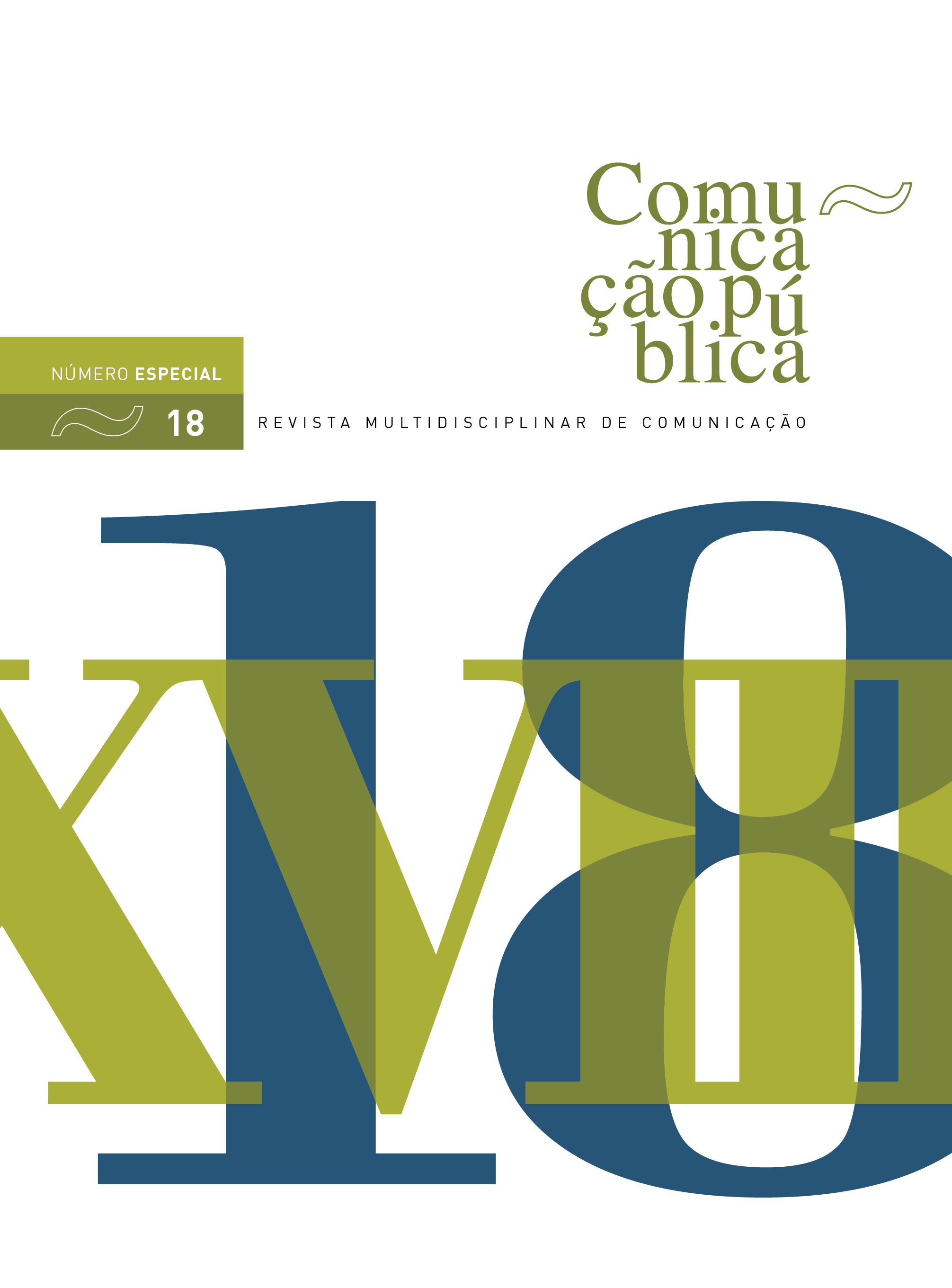Web 2.0 and deliberation. The ongoing practice of political debate in weblogs
DOI:
https://doi.org/10.4000/cp.997Keywords:
democracy, deliberation, public sphere, online, blogosphere, political participationAbstract
This article focuses on the critical analysis of the blogosphere, in order to question its potential technological and political uses. As a starting point, we hypothesize that the blogosphere constitutes a particular form of public sphere in a discursive space, with a political density, in which practices of deliberation can take place. We will evaluate the debate concerning the identification of the blogosphere with the concept of the public sphere in order to develop this argument. We will do it by referencing the normative requirements of the deliberative model and patterns of interaction between authors and readers of blogs. By means of this approach, it will be possible to 1) confront the conditions for the existence of deliberation with the critical points of the generalized use of the blogosphere; 2) identify the basic elements of a framework of analysis to assess the existence of deliberative practices in the blogosphere; and 3) summarize the results of empirical studies conducted on this subject.
Concerning these issues, we will analyze the quality of the debate around the concept of "austerity” in two blogs that are politically connected with parties. Data showed the prevalence of homophily, which is embodied in a cyberbalcanization phenomenon. Therefore, all the discursive process is characterized by well-defined polarization patterns, supported in extreme views. We concluded that the concept of deliberation does not apply to the more general type of communication in these two political blogs. It could be applied to a concept of participation; however, from a deliberative standpoint, it could only be understood as a lighter form of social interaction, with little density in a political plan.
Downloads
References
Barlow, A. (2008) Blogging America. Westport: Praeger Publishers.
Barlow, A. (2007) Rise of the Blogosphere. Westport: Praeger Publishers.
Benkler, Y. & Aaron, S. (2010) A tale of two blogospheres: Discursive practices on the left and right. Available at:http://cyber.law.harvard.edu/sites/cyber.law.harvard.edu/files/Benkler_Shaw_Tale_of_Two_Blogospheres_Mar2010.pdf Accessed June 29, 2011.
Bohman, J. (2004) Expanding dialogue: The internet, the public sphere and the prospects for transnational democracy. Sociological Review, vol. 52(2): 131-55.
Bohman, J. (1996) Public Deliberation: Pluralism, Complexity, and Democracy. Cambridge: MIT Press.
Castells, M. (2008) The New Public Sphere: Global Civil Society, Communication Networks, and Global Governance. The Annals of the American Academy of Political and Social Science, vol. 616, March: 78-93.
Chambers, S. (1995) Discourse and Democratic Practices. In White, S. K. ed. The Cambridge Companion to Habermas. Cambridge: Cambridge University Press: 233-254
Cohen, J. (1997) Deliberation and Democratic Legitimacy. In Bohman, J., Rehg, W. eds. Deliberative Democracy: Essays on Reason and Politics. Cambridge: MIT Press: 67-91.
Dahlberg, L. (2001) Democracy via Cyberspace. New Media Society, 3(2): 157-177.
Elster, J. (1997) The Market and the Forum: Three Varieties of Political Theory. In Bohman, J. & Rehg, W. eds. Deliberative Democracy. Essays on Reason and Politics. Cambridge. MA: MIT Press: 3-34.
Ferreira, G. B. (2011) Democracia digital e participação política: o acesso e a igualdade na deliberação online. Media & Jornalismo, 18(10) : 46-61.
Freese, J. (2009) Blogs and the Attention Market for Public Intellectuals Society, Vol. 46: 45-48.
Grossman, L. (2006) Person of the Year: You”. Time. December.
Habermas, J. (1991) The Structural Transformation of the Public Sphere: an Inquiry into a Category of Bourgeois Society. Cambridge: MIT Press
Habermas, J. (1984) The Theory of Communicative Action. Boston: Beacon.
Habermas, J. (2006) Political Communication in Media Society: Does Democracy Still Enjoy an Epistemic Dimension? The Impact of Normative Theory on Empirical Research. Communication Theory, 16(4): 411–26.
Lawrence, E., Sides, J., & Farrell, H. (2010) Self-segregation or deliberation? Blog readership, participation, and polarization in American politics. Perspectives on Politics, Vol. 8(1): 141–157.
Macedo, S. (1999) Introduction. In Macedo, S. ed. Deliberative Politics. Essays on ‘Democracy and Disagreement’. New York, Oxford: Oxford University Press.
Maynor, J. W. (2007) Blogging for Democracy: Autonomy and Reasonableness in the Blogosphere. Paper presented at the Midwest Political Science Association. Available at: http://www.internetadvocacycenter.com/thinktank/topics/articles/Maynor.pdf. Accessed June 29, 2011.
Rheingold, H. (1995) Virtual Community: Finding Connection in a Computerized World. Cambridge, London: Secker & Warburg.
Schudson, M. (1997) Why conversation is not the soul of democracy. Critical Studies in Mass Communication, 14(4): 297-309.
Sunstein, C. (2009) Republic.com 2.0, Princeton. NJ: Princeton University Press.
Sunstein, C. (1993) Democracy and the Problem of Free Speech. New York: The Free Press.
Techonorati (2009) Blogging’s Global Impact and the Future of Blogging. Available at: http://technorati.com/blogging/article/day-5-twitter-global-impact-and/page-2/#ixzz1Qf64Og3C. Accessed June 29, 2011.
Witschge, T. (2004) Online deliberation: Possibilities of the Internet for deliberative democracy. In Shane, P. (ed.), Democracy online: The prospects for political renewal through the Internet, New York, NY: Routledge: 109-122.
Young, I. M. (2001) Activist Challenges to Deliberative Democracy. Political Theory, 29(5): 670-690.
Downloads
Published
Issue
Section
License
Copyright (c) 2015 Direitos do Autor (c) 2015

This work is licensed under a Creative Commons Attribution-NonCommercial 4.0 International License.
Os conteúdos da Comunicação Pública estão licenciados com uma licença Creative Commons - Atribuição-NãoComercial 4.0 Internacional.


